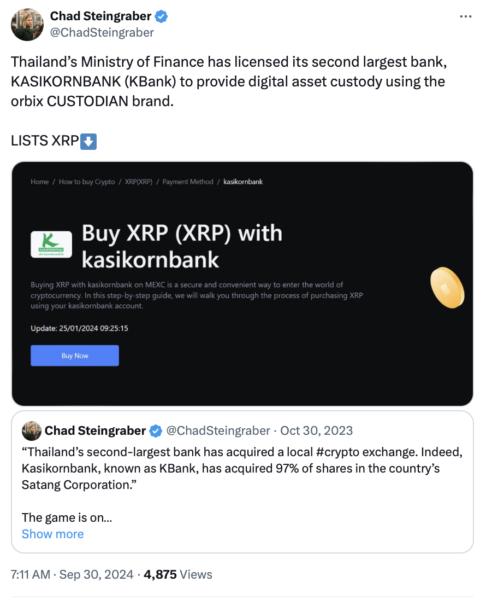Ford Motor Company, a U.S.-based carmaker, has entered the metaverse, it was reported on Friday, by way of a set of brand names and an array of non-fungible tokens (NFTs). The number of companies filing trademarks on NFTs, virtual goods and services related to the Metaverse, as well as cryptocurrency, is growing exponentially through 2022. According to The Law Office of Michael Kondoudis, an attorney licensed by the U.S. Patent & Trademark Office, the number of trademark applications related to the metaverse and non-fungible tokens (NFTs) has increased substantially over recent years.
Starting with major food companies filing trademark applications related to NFTs and the metaverse, others are following their lead. U.S. automotive giant Ford this week has also filed 19 trademark applications related to NFTs, suggesting that it may be venturing into the realm of digital collectibles stores. The news is full of reports about brand owners – including McDonalds, Crocs, and CVS – either running promotional drops on NFTs or filing trademark applications covering them.
Celebrities are flocking to NFTs, too, with singer Miley Cyrus being the latest to apply for an NFT trademark. Many fashion moguls, including Hugo Boss, Tommy Hilfiger, Levis, Champion, and Versace, recently filed for trademark applications in order to get into the metaverse and adopt the non-fungible token (NFT) world. Non-fungible tokens (NFTs), the metaverse, and the Web3 have been blowing up this year, and the amount of trademark applications related to those industries is evidence.
In only two years, Metaverse and NFT trademark applications are up almost 100%. As for 2022, the most prolific month was March, with 1080 new NFT trademarks registered. It is worth noting that Finbold reported in mid-February that U.S. applications for NFT trademarks numbered 1,263 for 2021; by contrast, only three trademark applications were filed in 2020. In November, a court case filed by nft-trademark plaintiffs filed in New York City against stock exchange Finbold, claiming the company had illegally used the well-known trademark of Nike.
The complaint alleged trademark infringement, false advertising, and unfair competition arising from the Internet retailer StockXs minted NFTs related to sneakers using Nikes trademarks without authorization from Nike. Online retailer StockX responded that its NFTs are permitted trademarksfair use within the context of its retail sales and promotion of genuine NIKE sneakers. Hermes, among others, claimed that its MetaBirkin NFTs were a violation of, and a watering down of, his well-known BIRKIN trademark.
Hermes International claims that Mason Rothschilds use of MetaBirkins name on a collection of NFTs representing digital representations of Hermess luxurious Birkin bags, the MetaBirkins namesake, Hermess luxurious Birkin bags, caused consumer confusion. Cointelegraph reported September 1st that luxury brand Hermes filed trademark applications in the US to use their name on the Metaverse, NFTs, and virtual currencies after the company filed suit against MetaBirkins founder Mason Rothschild over the supposed profits made by selling NFTs bearing the Birkin name of the company. Now, it is time to think about how existing trademark and copyright laws might be used to protect brands, NFTs and NFT-related products both in real life and the metaverse, the three-dimensional virtual world which frequently simulates the physical one in which we live.





